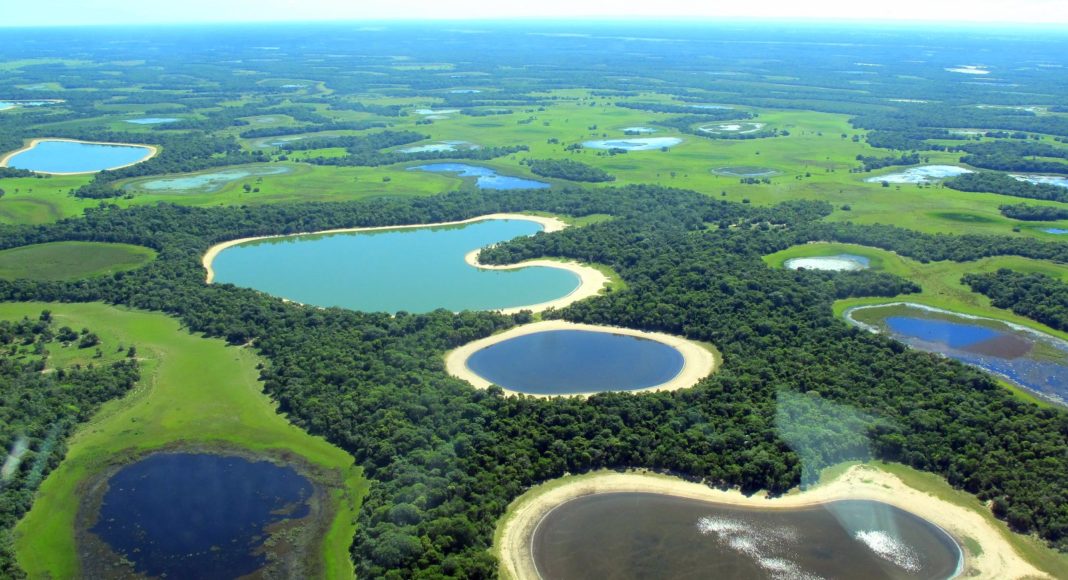With all the environmental destruction occurring in Latin America by agri-business, mining and road-building, it is good sometimes to know that there are extraordinary individuals who are managing, against the odds, to stem and even reverse the damage.
Today (29 April 2015) two of these individuals were among the seven winners of the prestigious Whitley Awards, also known as “Green Oscars”. Sir David Attenborough, a Trustee of the Whitley Fund for Nature, said: “Whitley Award winners are simply exceptional people – passionate individuals who are committed to achieving positive environmental impact and long-term conservation and community benefits.”
 Arnaud Desbiez, French in origin but now permanently settled in Brazil, works with giant armadillos in the Pantanal wetlands. “Giant armadillos?” I asked him. “I’m afraid I’ve never even heard of them.” “You’re not alone”, he laughed. “They’re very secretive creatures and for some years it was thought that they had become extinct.” Arnaud said that the 50-year-old owner of the ranch where he often stays in the Pantanal had never seen one, though she had lived there all her life.
Arnaud Desbiez, French in origin but now permanently settled in Brazil, works with giant armadillos in the Pantanal wetlands. “Giant armadillos?” I asked him. “I’m afraid I’ve never even heard of them.” “You’re not alone”, he laughed. “They’re very secretive creatures and for some years it was thought that they had become extinct.” Arnaud said that the 50-year-old owner of the ranch where he often stays in the Pantanal had never seen one, though she had lived there all her life.It’s hard to imagine how this can happen: as its name suggests, the giant armadillo is large – 1’50 metres long and weighing the same as the average Labrador (50 kilos). But it lives underground during the day and only leaves its den cautiously at night. “It’s the kind of species that can become extinct without anyone noticing”, said Arnaud. Even so, Arnaud and his team have managed to film a female armadillo with a baby offspring.
Arnaud will uses his prize money of £35,000 to create more protected areas for the giant armadillo, moving into the cerrado, a region greatly devastated by cattle rearers and soya farmers. Protecting their habitat, he said, is important, not just for the giant armadillo itself, but for other species, as the armadillo acts as an “ecosystem engineer”, that is, it modifies the habitat for other species. “The armadillo burrow stays at a stable 25°C, which means that it becomes an important refuge from the heat for other animals”, said Arnaud. Ocelots, crab-eating fox, various lizards, tortoises, and the weasel-like tayra have all been discovered using the deep burrow as a refuge
 The other Latin American award winner works with a very different species – the cotton-top tamarin, a tiny monkey, weighing less than a pound, which is also threatened with extinction. The Colombian Rosamira Guillen, from Fundación Proyecto Tití, says that the main problem facing the cotton-top tamarin is habitat destruction. “Only 7% of its habitat – the tropical dry forest – remains”, she said. “Most of the forest has been destroyed by deforestation, mining and farming.”
The other Latin American award winner works with a very different species – the cotton-top tamarin, a tiny monkey, weighing less than a pound, which is also threatened with extinction. The Colombian Rosamira Guillen, from Fundación Proyecto Tití, says that the main problem facing the cotton-top tamarin is habitat destruction. “Only 7% of its habitat – the tropical dry forest – remains”, she said. “Most of the forest has been destroyed by deforestation, mining and farming.” Rosamira said she would use her prize money, also £35,000, to extend their conservation work among communities. “We are getting more and more people involved”, she said. “We’ve been helping them find other sources of income, such as making eco-mochilas (eco-satchels) from plastic bags.” The women running this  project have crocheted 3.5 million plastic bags into remarkably attractive bags, winning awards for their work. More recently, they have developed a project for turning plastic into posts, so that the families won’t have to cut down the forest when they build fences. They also work a great deal with schools, holding festivals in which children dress up in cotton-top tamarin costumes.
project have crocheted 3.5 million plastic bags into remarkably attractive bags, winning awards for their work. More recently, they have developed a project for turning plastic into posts, so that the families won’t have to cut down the forest when they build fences. They also work a great deal with schools, holding festivals in which children dress up in cotton-top tamarin costumes.
 project have crocheted 3.5 million plastic bags into remarkably attractive bags, winning awards for their work. More recently, they have developed a project for turning plastic into posts, so that the families won’t have to cut down the forest when they build fences. They also work a great deal with schools, holding festivals in which children dress up in cotton-top tamarin costumes.
project have crocheted 3.5 million plastic bags into remarkably attractive bags, winning awards for their work. More recently, they have developed a project for turning plastic into posts, so that the families won’t have to cut down the forest when they build fences. They also work a great deal with schools, holding festivals in which children dress up in cotton-top tamarin costumes.“We have achieved a lot but we need to do more, particularly replanting forest and creating corridors between the forest fragments”, Rosamira told LAB. She is hopeful that, with the end to the prolonged civil war in Colombia, new opportunities will arise. Until recently, the Foundation only worked around the city of Cartagena in the far north, a part of Colombia which was relatively unaffected by the violence; but now they are planning to extend their conservation work to other areas which until recently were so dangerous that no community work could be undertaken.

